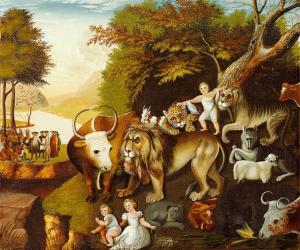The World of Herbert George Wells
Nonfiction, Religion & Spirituality, New Age, History, Fiction & Literature| Author: | Van Wyck Brooks | ISBN: | 9781465625915 |
| Publisher: | Library of Alexandria | Publication: | March 8, 2015 |
| Imprint: | Language: | English |
| Author: | Van Wyck Brooks |
| ISBN: | 9781465625915 |
| Publisher: | Library of Alexandria |
| Publication: | March 8, 2015 |
| Imprint: | |
| Language: | English |
First of all it implies a certain disposition and certain habits of mind, habits of mind which are all to be found in the first phase of his work, in those marvellous tales of Time and Space that won him his original sensational fame. It is this disposition behind them, this quality they have as of an inevitable attitude toward life and the world, which distinguishes them at once from those other superficially similar tales of Jules Verne. The marvels of Jules Verne are just marvels, delightful, irresponsible plunderings from a helpless universe. To the grown-up mind they have a little of that pathetic futility one associates with a millionaire's picture-gallery, where all sorts of things have been brought together, without any exercise of inevitable personal choice, because they are expensive. I don't know that the tales of Wells are better tales, but they have that ulterior synthetic quality that belongs to all real expressions of personality. Wells was never merely inventive; his invention was the first stage of an imaginative growth. Now the quality that pervades all these early writings is what may be called a sense of the infinite plasticity of things. He conceived a machine that could travel through time, a man who found a way to become invisible, a drug that made men float like balloons, another drug that enabled men to live a thousand hours in one, a crystal egg through which one could watch the life in Mars, a man who could stop the sun like Joshua, a food that turned men into giants, a biologist who discovered a method of carving animals into men, an angel who visited a rural vicar, a mermaid who came to earth in search of a soul, a homicidal orchid, a gigantic bird hatched from a prehistoric egg, a man who passed outside space. In short, the universe appeared to him like that magic shop of which he also wrote, where the most astonishing things may happen, if you are the Right Sort of Boy. If all this implies anything it implies that things in general are not fixed and static, but that they are, on the contrary, infinitely plastic, malleable, capable of responding to any purpose, any design you may set working among them. The universe, it seems to assume, may be and quite possibly is proceeding after some logical method of its own, but so far as man is concerned this method appears to be one of chance. Obviously, man can do the most surprising things in it, can take as it were all sorts of liberties with it. The universe, in short, is like a vacant field which may or may not belong to some absent landlord who has designs of his own upon it; but until this absent landlord appears and claims his field, all the children in the neighborhood can build huts in it and play games upon it and, in a word, for all practical purposes, consider it their own.
First of all it implies a certain disposition and certain habits of mind, habits of mind which are all to be found in the first phase of his work, in those marvellous tales of Time and Space that won him his original sensational fame. It is this disposition behind them, this quality they have as of an inevitable attitude toward life and the world, which distinguishes them at once from those other superficially similar tales of Jules Verne. The marvels of Jules Verne are just marvels, delightful, irresponsible plunderings from a helpless universe. To the grown-up mind they have a little of that pathetic futility one associates with a millionaire's picture-gallery, where all sorts of things have been brought together, without any exercise of inevitable personal choice, because they are expensive. I don't know that the tales of Wells are better tales, but they have that ulterior synthetic quality that belongs to all real expressions of personality. Wells was never merely inventive; his invention was the first stage of an imaginative growth. Now the quality that pervades all these early writings is what may be called a sense of the infinite plasticity of things. He conceived a machine that could travel through time, a man who found a way to become invisible, a drug that made men float like balloons, another drug that enabled men to live a thousand hours in one, a crystal egg through which one could watch the life in Mars, a man who could stop the sun like Joshua, a food that turned men into giants, a biologist who discovered a method of carving animals into men, an angel who visited a rural vicar, a mermaid who came to earth in search of a soul, a homicidal orchid, a gigantic bird hatched from a prehistoric egg, a man who passed outside space. In short, the universe appeared to him like that magic shop of which he also wrote, where the most astonishing things may happen, if you are the Right Sort of Boy. If all this implies anything it implies that things in general are not fixed and static, but that they are, on the contrary, infinitely plastic, malleable, capable of responding to any purpose, any design you may set working among them. The universe, it seems to assume, may be and quite possibly is proceeding after some logical method of its own, but so far as man is concerned this method appears to be one of chance. Obviously, man can do the most surprising things in it, can take as it were all sorts of liberties with it. The universe, in short, is like a vacant field which may or may not belong to some absent landlord who has designs of his own upon it; but until this absent landlord appears and claims his field, all the children in the neighborhood can build huts in it and play games upon it and, in a word, for all practical purposes, consider it their own.















